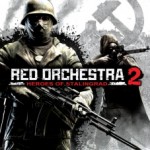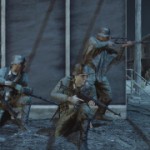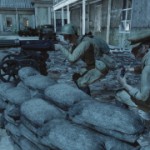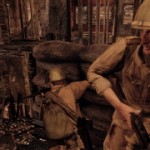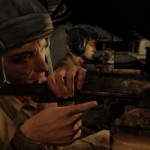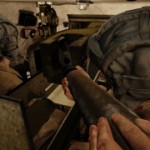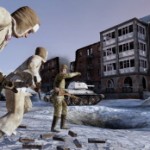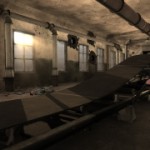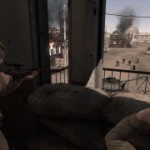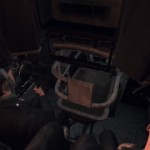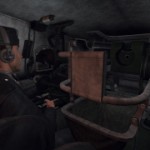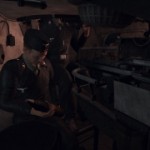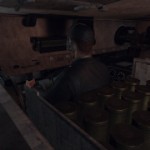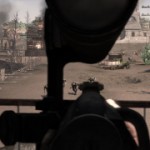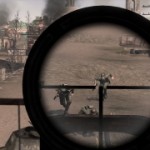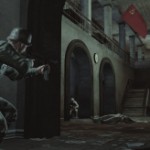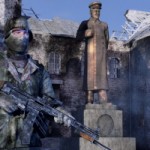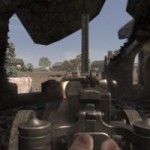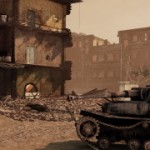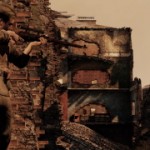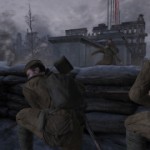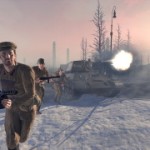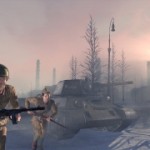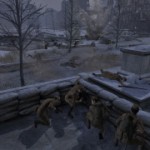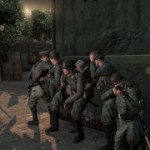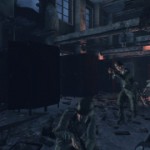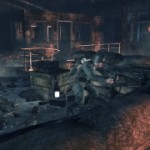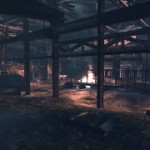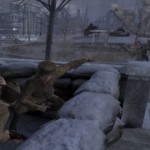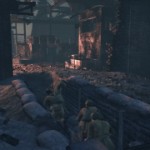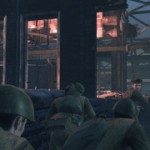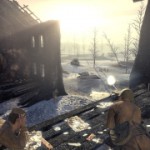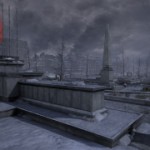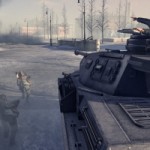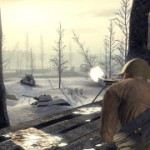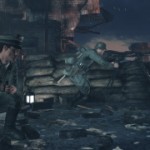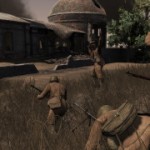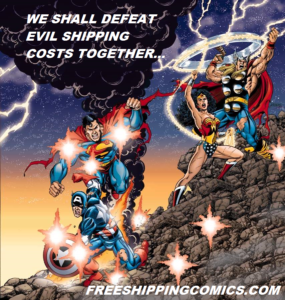Videogame Soundtrack Reviews:
Saints Row III, Kingdoms of Amalur- Reckoning, Red Orchestra 2,
and Deus Ex
Part 3: Red Orchestra 2
I always have a certain amount of reluctance getting into games based on wars from our actual history. I know how popular they are and how tiresome and difficult it surely becomes to try and think of military or combat videogames based entirely on fantasy; yet I can’t seem to get behind them. I think it’s simply a personal thing on my behalf and it’s entirely likely that if I started to play a really, really good one I’d end up getting sucked in and addicted to it, thereby enjoying it almost against my will. Though in general they don’t interest me and to be honest some downright offend me.
Attack on Pearl Harbor or the Pearl Harbor Trilogy by Nintendo for example; I just don’t find it to be in very good taste to play a game that re-creates and lets players “experience” something as devastating to our military with consequences even more devastating to the world and to Japan. The option to be either an American or a Japanese pilot also sickens me, but really so does the whole notion of creating any game where you fight as a soldier and turn killing your enemy into an aspect of entertainment. Is it because the violence and killing and realistic shooting and all of that will desensitize the youths of the world and violence begets violence etc. etc.?? Nope- I don’t believe any of that crap. But I do believe war is something that sucks all over and that these battles actually happened to real people, some of whom are still alive to remember, and I doubt they’d find it an “innovative” approach to war-game  play. I’m pretty sure they’d find it as disrespectful as I do.
play. I’m pretty sure they’d find it as disrespectful as I do.
Because of this I know that I started off with a bias against the game and therefore also the Red Orchestra 2: Heroes of Stalingrad Original Soundtrack as well. I tried to ignore that and keep an open mind but I thought that for the sake of fairness I should warn readers that while I’ll certainly do my best to prevent it, it’s possible this review will carry some of that bias.
The soundtrack was composed and orchestrated entirely by Sam Hulick, best known for his work on the Mass Effect series, which earned him, among other things, a 2011 B.A.F.T.A Award nomination in Best Original Music for the Mass Effect: 2 Soundtrack.
In a 2011 interview with Chris Greening at squareenixmusic.com, Hulick talks about his work, explaining that he composed two completely separate scores- one for each side of each battle- and how he composed/what his influences were for each one, naming both famous Russian and German Classical composers:
“Throughout the Battle of Stalingrad, there’s a recurring sense of defiance and steadfastness from the Russians. From the German side, there’s a feeling of bravado and overconfidence as they stormed into Stalingrad, which shifted to complete and utter desperation as the war came to an end in the winter months. The German soldiers were repeatedly forced into battle by Hitler, despite their desires to surrender. The entire score definitely has a modern sound to it, but there are  hints of classical styles there: Tchaikovsky, Mussorgsky, and Rachmaninov were references, as were Beethoven, Wagner, and Bruckner.”
hints of classical styles there: Tchaikovsky, Mussorgsky, and Rachmaninov were references, as were Beethoven, Wagner, and Bruckner.”
He also goes into detail about how both the German and Russian sides cover a very broad range of emotional cues set throughout both soundtracks that encompasses spectrum of human feelings during a war. According to Hulick this was the foremost requirement of Tripwire Entertainment and caused him to pour a lot of emotion into the making of the music.
“The darker cues make heavy use of slow string movements, while some of the triumphant Russian cues borrow from Soviet marches. There are several moods present in the score, depending on what’s going on: defiant, somber, majestic, urgent, triumphant, and depressing.”
This would have to be a priority to Tripwire, considering their unique approach to the application of music for emotional accenting during the game. Personally, I thought it was a really brilliant approach and it made complete sense to me the way Hulick explained it:
 “ It’s not quite your typical interactive music that matches what’s going on during combat, where you might adjust the intensity based on the number of enemies, or how close to death your character is. Since many people tend to mute the music in these kinds of online multiplayer games and play their own playlists, Tripwire and I decided to emulate that by providing a “playlist” that fits the mood of the game. So instead of looping a track over and over (which would get quite tedious on maps that last several minutes) we’ve set up a playlist that runs through a list of cues.
“ It’s not quite your typical interactive music that matches what’s going on during combat, where you might adjust the intensity based on the number of enemies, or how close to death your character is. Since many people tend to mute the music in these kinds of online multiplayer games and play their own playlists, Tripwire and I decided to emulate that by providing a “playlist” that fits the mood of the game. So instead of looping a track over and over (which would get quite tedious on maps that last several minutes) we’ve set up a playlist that runs through a list of cues.
A cue plays from start to finish, and then the next cue is played. The priority here was to suit the mood, not necessarily match the action. That being said though, the playlist changes based on your team’s morale, so if your team starts performing poorly, there’s a transition cue, for example, that that plays to bring you from a neutral morale state to a low morale state. Then at that point, the playlist consists of low morale cues that are played one after the other. And of course, the music selection  depends on if you’re playing axis or allies.”
depends on if you’re playing axis or allies.”
I’m certain that works extremely well for Red Orchestra 2 while it’s being played and makes for a much better musical experience than other games are able to provide. As far as listening to the music from the game on its own? Well that is something else entirely.
To me much of this soundtrack comes off as a little too bi-polar.
There’s a lack of consistency and sudden tone changes, like crashing cymbals & rapid strings unexpectedly turning into sad and gentle melodies, which simply did not appeal to me. Certain sections, while beautifully composed, are placed with jarringly different pieces in tone and tempo. While surely intentional as a means to show emotional contrast, I found them to be more at odds with each other than complimentary. The same could be said about a lot of the songs’ endings; a softer, more melancholy theme is given a harsh and abrupt crescendo before its cut off, while the faster and more intense marches fade out when they often would have benefited from a more concise conclusion.
 That’s not to say that there were not some songs and many sections of songs that I really enjoyed. The very classical-sounding “Ghosts in the Snow” was exceptionally beautiful and actually did manage to bring out some emotion in me. There’s just this one point towards the end where it almost begins to be too much, but thankfully it pulls back and eases off the intensity at the perfect moment.
That’s not to say that there were not some songs and many sections of songs that I really enjoyed. The very classical-sounding “Ghosts in the Snow” was exceptionally beautiful and actually did manage to bring out some emotion in me. There’s just this one point towards the end where it almost begins to be too much, but thankfully it pulls back and eases off the intensity at the perfect moment.
Another of my favorites was “The Story of a Soldier” which had this amazing theme running through it, along with a more subtle use of things like the snare and bass drums, which is probably why I liked it. After a few listens through the whole CD it becomes easy to tell the Russian tracks from the German by their repeated use of the same basic components and instruments and in general I think I liked the later German tracks and the earlier Russian ones.
In conclusion to his interview, Mr. Hulick said this about the Red Orchestra 2: Heroes of Stalingrad Original Soundtrack coming out on CD:
“I think the music absolutely stands on its own outside of the game and is quite listenable. That’s always my goal when I score for media, to make sure that what I’m writing is compelling enough to encourage people to listen to it completely on its own. Despite spending so many months working on this music and hearing it so much, I still have my favorites that I listen to over and over. I hope other people like it just as much!”
I’m glad that he has that attitude while he’s working on a project and that his goal is for the music to be strong enough to stand alone; I think that makes for better soundtracks and thus, better games. This truly is a beautifully composed score- far more enjoyable than Kingdoms of Alamur- Reckoning- but my guess is that it’s probably not as good as Mr. Hulick’s work on Mass Effect. Overall I’d say one would probably be better off checking out his Mass Effect: 2 and waiting to give a listen to number 3 when that one comes out, and that you wouldn’t be missing all that much if you skipped this one unless you really dig classical music and military marches.
Track Listing:
1 Storm Clouds over Stalingrad
2 The Unstoppable Wehrmacht
3 Steady We Must Stand
4 Strength in Unity
5 Taking Station No. 1
6 Not One Step Back
7 The Story of a Soldier
8 Devils in the Tower
9 Red Fortress
10 Reinforcing Pavlov’s House
11 Pursuit of Pavlov
12 So Far From Home
13 Impenetrable
14 Zugzwang
15 The Descent into Hell
16 The Bitter End
17 Victory at the Barrikady
18 Across the Steppe
19 Ghosts in the Snow
20 Wave of Fury
21 Red-Painted Steppe
22 The Great Soviet Showpiece
23 Defiant till the Very End
24 Praying For Death
25 The End of the Line
Red Orchestra 2: Heroes of Stalingrad Original Soundtrack is composed and orchestrated by Sam Hulick, along with Classicai music consultant Steven J. Kukla, was mixed and mastered by John Rodd at Clearstory Sound, and edited by Dave Lawrence. The lyrics were provided by Tony Gillham (Russian) and Julian Dasgupta (German) along with vocals from the Philadelphia Boys Choir and Chorale, and violinist Jeff Ball. It is distributed by Sumthing Else Music Works in collaboration with Tripwire Interactive, ©2006-2011
(Image Gallery of Game Stills)
Info/Image/Interview Sources:
http://www.heroesofstalingrad.com/ http://samhulick.com/
“Interview with Sam Hulick” May 2011 (Link)
Interviewer: Chris Greening Editor: Chris Greening Coordination: Greg O’Connor-Read
C/O: http://www.squareenixmusic.com
(http://www.squareenixmusic.com/features/interviews/samhulick.shtml)

